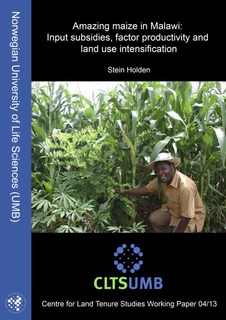Enhancement of Land Tenure Relations as a Factor of Sustainable Agricultural Development: Case of Stavropol Krai, Russia
The aim of this paper is to give an overview and analyze the contemporary land tenure relations in Russia in view of their influences on economic viability of agricultural production. The paper investigates progress made toward the development of agricultural land market in economies in transition. The research is made with emphasis on Stavropol Krai, agricultural region in the southern part of Russia.





